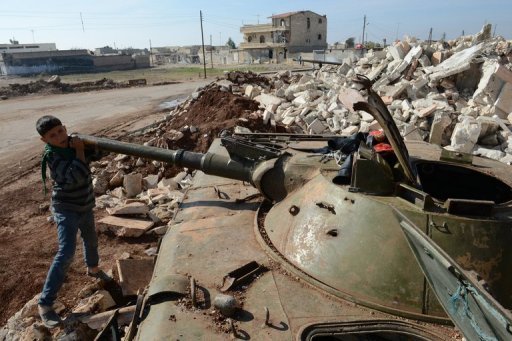The Spanish city of Melilla, on the North African coast, is providing Syrian refugees with an alternative way into Europe. However, resources are being stretched by the new arrivals as Guy Hedgecoe reports.
Nearly a year ago, Asif Duwara left his home in Sweida, in south-western Syria. The war had not reached his town, but it was getting closer and he feared for his safety. Travelling overland, the 23-year old went first to Algeria and then, with the help of people smugglers, to Nador in northern Morocco.
There, he bought a Moroccan passport and crossed from Morocco to Melilla, a Spanish city on the North African coast. He is technically in Europe now, but plans to keep travelling north.
“I want to study in Germany,” he told DW. “My brother is there and we want to bring the whole family from Syria to Germany.”
Asif is one of thousands of Syrians who have fled the conflict in their country and chosen this circuitous, overland route to Europe. But unlike the refugees who take a more direct course across the Mediterranean sea, the arrival of Syrians in Melilla is tightly controlled.
Only an estimated 20 to 40 arrive in the city on an average day, although on some occasions many more cross. Spanish NGO workers who help refugees in the city say that the Moroccan police control the flow. The Spanish border authorities are then obligated to let them in as refugees.
Morocco controls the flow
“Spain has reached an unofficial border agreement with Morocco on the refugee issue – it’s not written down because that would be illegal – and a quota of arrivals has been set,” says Jose Palazon, of the NGO Prodein.
“Morocco controls the flow. That’s where 20 or 30 [Syrians] are selected each day and the selection is done according to how much the Syrians can pay.”
Palazon says that Syrians who are unable to obtain a foreign passport have to pay as much as 3,000 euros to the Moroccan police to cross to Melilla.
The political party Podemos – an ally of Greece’s Syriza – has criticized the Spanish government’s handling of the situation. In October, several senior members of the party visited the city and its immigrant temporary stay center (or CETI) where many refugees are staying.
‘Spanish Guantanamo’
“The situation is at a complete standstill, there’s a lack of foresight and a lack of resources,” says Miguel Urban, a member of the European Parliament for Podemos, which has described Melilla as a “Spanish Guantanamo.” “It’s not the fault of those in the center, who do what they can. It’s the fault of the government which isn’t offering the necessary resources.”
He points to the fact that the center, which is on the outskirts of Melilla, was built for 480 migrants, but it currently houses nearly 2,000. Journalists are not allowed into the center, but some of the refugees inside said the conditions were cramped and often dirty, despite the efforts of the staff.
“It’s very difficult here, there are lots of people and lots of problems,” says a 60-year-old Syrian man who has been staying in the center with his wife and two children since crossing from Morocco two weeks earlier and who does not want to give his name. Despite having a heart condition he is adamant that coming to Melilla was the right thing to do.
“In Europe there isn’t any war,” he told DW. “If you come to Europe, there is food, a place to sleep and there aren’t any problems.”
The administrators of the stay center and the Spanish government were not available to comment on the Syrian situation, nor was the governing Popular Party (PP). However, the mayor of Melilla, Juan Jose Imbroda of the PP, has roundly rejected the criticism, describing the city as being “at the vanguard when it comes to refugees.”
Stuck in Melilla
Those who arrive in Melilla usually spend two to three months there, before being taken to mainland Spain and being granted a “red card” which allows them to travel freely around the country. In the meantime, their passport is taken from them and their legal status is reviewed, a process which can take 18 months or more.
The novelty of arriving in Europe wears off for many Syrians after several weeks in Melilla waiting for their paperwork to be processed.
“Melilla is not a good place to stay,” says another man, who does not want his name to be published and who has been in the city for several weeks with his wife and son. He says he does not feel safe and that the previous night some Moroccan men tried to mug him, but he is determined not to judge Spain on the strength of this enclave in North Africa.
“A lot of people [here] have a bad idea about Spain,” he told DW. Unlike many of his compatriots, he is not planning to go elsewhere in Europe – at least not yet.
“I will not make a decision now. I will see when I reach Madrid or somewhere else in Spain. If they treat me well, I will stay. I want to be treated well. I don’t want thousands of dollars or euros in my bank account, I want to live and to start working as soon as possible.”




